Curriculum & Learning
ENGLISH
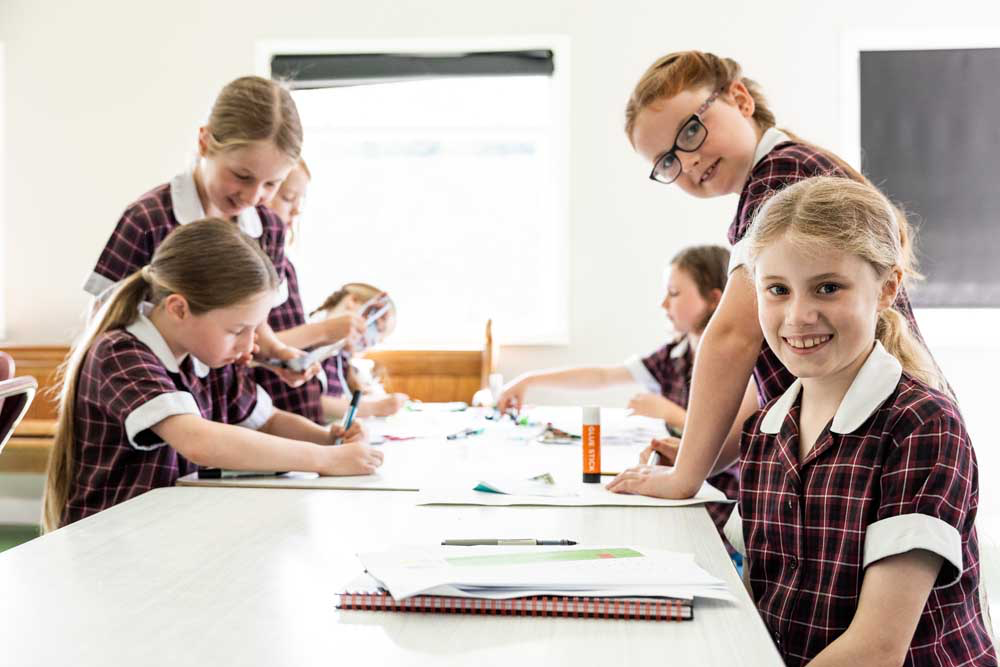

Reception
Pupils in our Reception classes are introduced to the sounds of the alphabet through our scheme, Read Write Inc. They work in small, differentiated, teacher-led groups initially practising phonic sounds, but very quickly moving onto handwriting and writing for a range of purposes, such as story writing, report writing and non-fiction writing which are based on the half termly topic using the Cornerstones scheme e.g dinosaurs, space, growing plants, habitats. In addition, they continue to develop their communication skills through role-play and language activities.
Lower Prep
Pupils in Lower Prep have a daily Read Write Inc lesson. By the end of Form II, most children know all their phonic sounds and letters and are emerging as confident writers and spellers with a good grasp of basic grammar. The Read Write Inc scheme works methodically through the sounds, offering the children the chance to develop their skills independently and consistently. Children work in ability groups across the phase depending on their learning profile. This means that all children, regardless of chronological age, are working at their own personal ability level. An extended writing session is planned once a week which links directly to their Cornerstones topic. E.g. Pirates, Castles, Woodlands. This gives the children to opportunity to showcase their new phonic learning in a fun and engaging manner. Once children reach a suitable standard in reading, they are then moved onto the Accelerated Reader scheme which helps children to choose their next books based on their specific reading ability and provides consistent data to help enhance their progress and understanding.
Middle prep
Pupils in Middle Prep have a daily English lesson linked to both their class reader and their Cornerstones topic. Pupils in middle prep will read six books linked to their topics during the course of the year. E.g. Roald Dahl’s The Witches linked to the Heroes and Villians topic in Form III and The Thieves of Ostia linked to their Roman topic. This style of teaching enhances children’s interest and knowledge of books whilst developing their empathy for characters through historical events and developing their understanding of the world around them. Each half term, lessons include grammar, spelling, non-fiction, fiction and poetry. Formal assessments in Reading, Grammar and Spelling take place in the Autumn and Summer terms. The Accelerated Reader scheme is used to monitor children’s reading and help them to choose books at their level from the library. Children take a quiz after each book they read and this counts towards their target. Children who reach their termly reading target receive a certificate and have their name added to the year group Accelerated Reader target display in the school corridor.
Upper prep
Pupils in Upper Prep have six English lessons a week linked to both their class reader and their Cornerstones topic. Pupils in upper prep will read three books linked to their topics during the course of the year. E.g. Berlie Doherty’s Streetchild linked to the Victorian topic in Form V and Michael Morpurgo’s Warhorse linked to the World War I topic in Form VI. This style of teaching enhances children’s interest and knowledge of books whilst developing their empathy for characters through historical events and developing their understanding of the world around them. Each half term, lessons include grammar, spelling, non-fiction, fiction and poetry. Formal assessments in Reading, Grammar and Spelling take place in the Autumn and Summer terms. Form VI sit the national SATs in May. The Accelerated Reader scheme is used to monitor children’s reading and help them to choose books at their level from the library. Children take a quiz after each book they read and this counts towards their target. Children who reach their termly reading target receive a certificate and have their name added to the year group Accelerated Reader target display in the school corridor.
MATHS
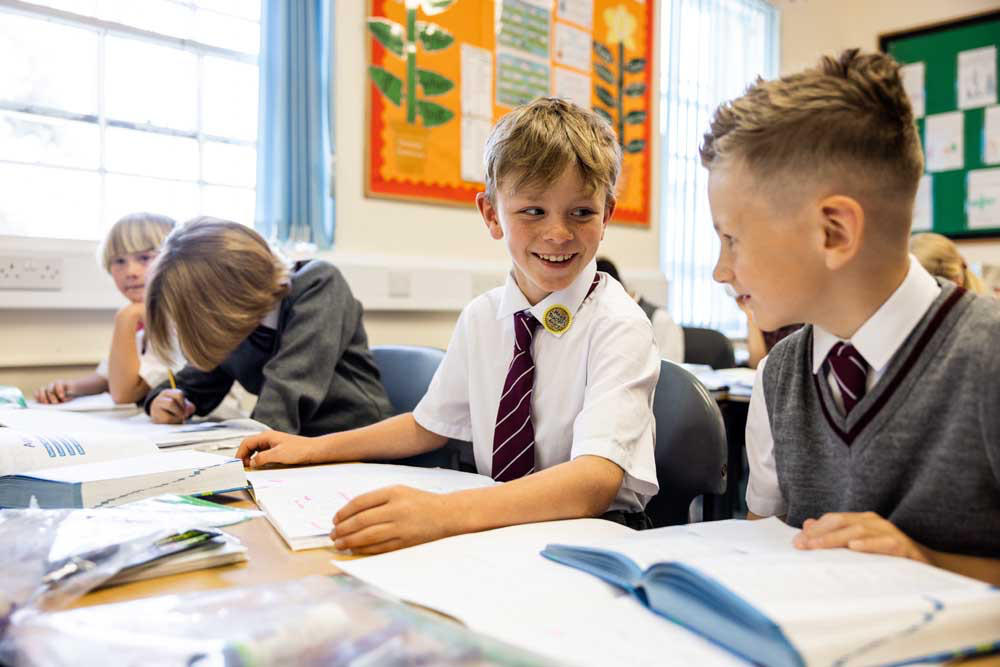
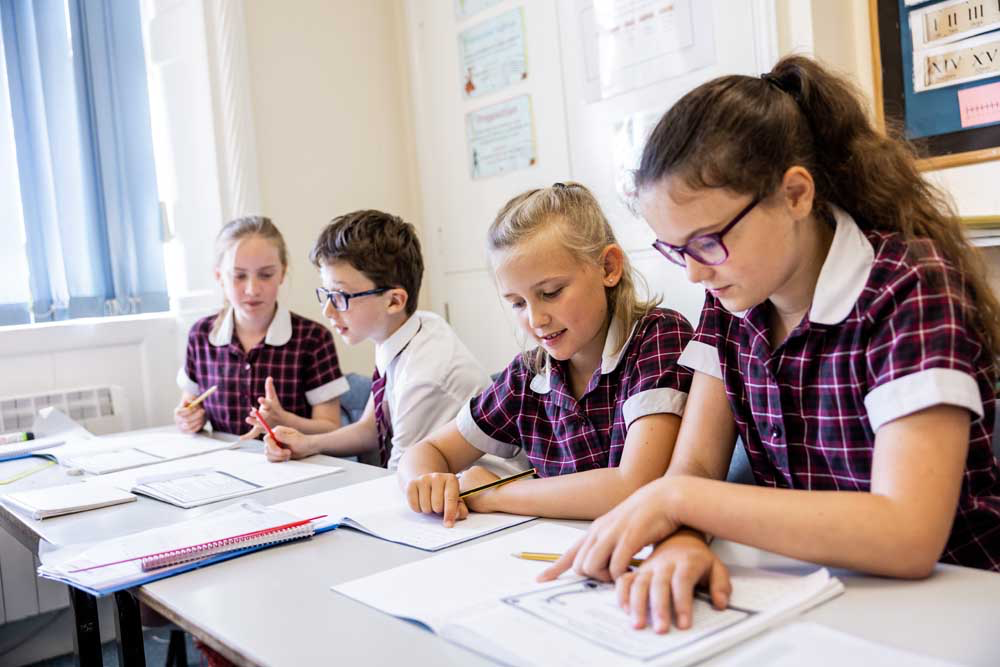
Reception
Children are introduced to concepts such as quantity, shape and space by teachers and then the environment enables children to further develop their understanding of these concepts. The mathematical experiences that they will be involved in will include creating and solving problems, engaging with stories, songs, games, practical activities, and imaginative play. Plenty of time is given to children to revisit, develop and make sense of mathematical concepts for themselves. Our aim is maintaining children’s enthusiasm, so they develop positive self-esteem as learners of mathematics and feel confident to express their ideas.
Lower Prep
In Lower Prep, pupils are taught in classes in Form I and are set into two ability groups from Form II, which are taught by the year group Form Tutors. They are introduced to concepts using a range of interactive resources and games as well as physical resources. The emphasis is on building core skills and achievement is consistently praised. In Form I, the children win a certificate once they know their number bonds to 10 and 20. They have a discrete problem-solving session each week from Form II. Pupils will start to learn their times tables and develop their use of number sentences along with basic mathematical vocabulary.
Middle Prep
In Middle Prep pupils are set into two ability groups which are taught by their year group Form Tutors. The children will continue to use physical resources but will also start to consider number in a more abstract way. They will continue with their times tables being able to win certificates and awards and use online resources to practise them. They will have a problem-solving session each week to develop their investigative and mental maths skills. The fundamental skills of maths are reinforced and extended.
Upper Prep
In Upper Prep, pupils are set into two ability groups, which are taught by maths specialists. The children will start to use mathematical vocabulary to discuss and explain concepts and ideas. They will look at different problem-solving skills and develop strategies. The children will develop mathematical resilience as they start to work on tasks and activities where there is not one simple answer. Physical resources will still be available for individuals who choose to use them when working. Pupils are given specific assistance to help with preparation for secondary school assessments.
HOUSE SYSTEM
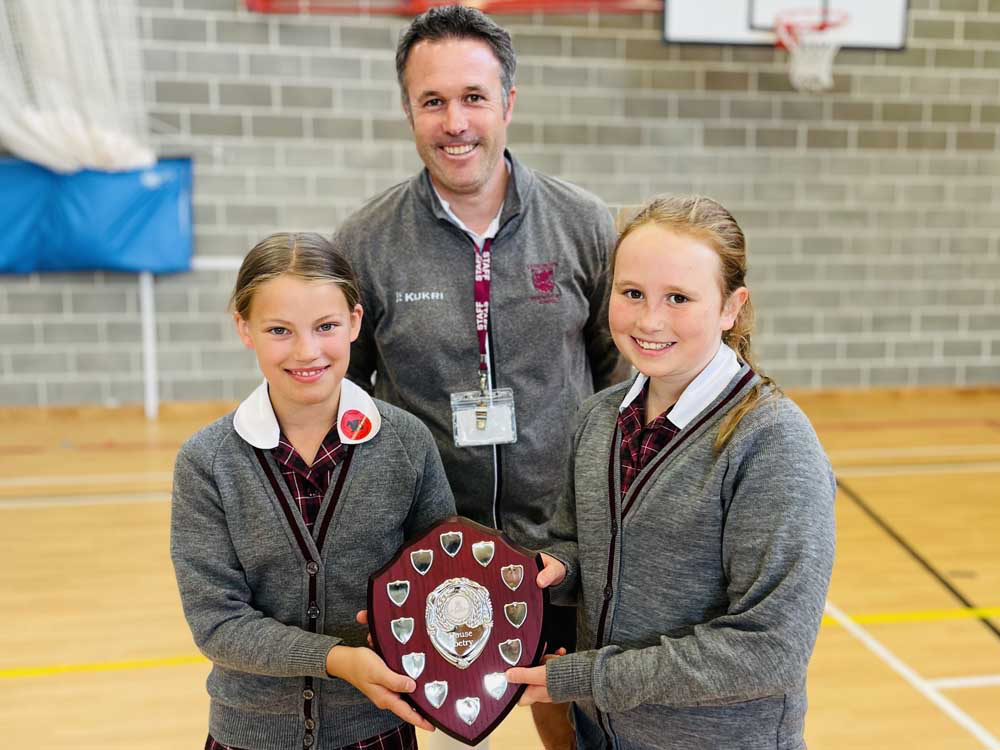

From Reception to Form VI, each pupil becomes a proud, lifelong member of one of four Houses; St. Andrew’s (blue), St. David’s (yellow), St George’s (red) or St. Patrick’s (green). Pupils really enjoy being part of our House System and accrue house points weekly, winning stickers and badges in a House Assembly where we celebrate the pupils with the most points in each year group and overall. The House Captains representing the overall winning House collect the cup and raise the flag on our tower!
The House System also provides fantastic opportunities for friendly competition across the school and between year groups. We run House Football, Netball, Hockey, Kwik Cricket, Poetry, Music, Art and a House Quiz throughout the year. Our Poetry, Music and Art competitions are externally judged by local experts which the children find very exciting.
Our School Values are also embedded in our House system, and pupils can win tokens for demonstrating one (or more) of our values in the way they behave. Each term, the House with the most tokens for each value are declared winners. The competition to be the ‘Kindest House’, or the ‘Most Responsible’, ‘Highest Achieving’ or ‘Most Resilient’ are hotly contested honours!
SPORT and PE
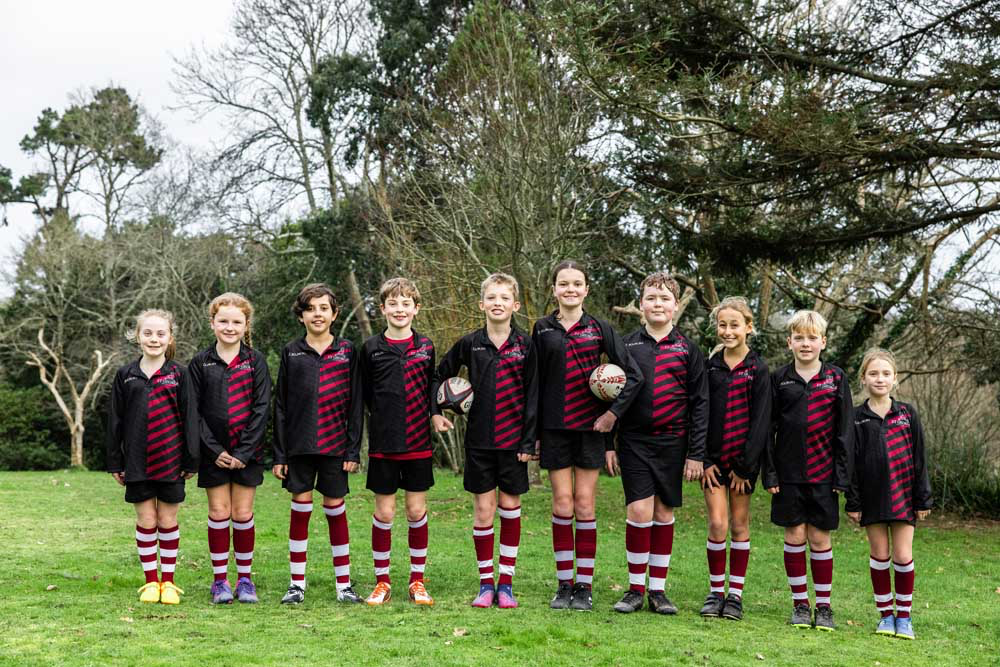

PE and Sport is something we excel at here at St. George’s. Every session is accessible, inclusive and fun, meaning every child can learn and improve on their physical literacy. Our excellent Sports department is adept at challenging those with sporting prowess, meaning a high proportion of pupils progress onto a pathway that leads them to representing the island in sporting tournaments.
Facilities
Blessed with 35 acres of space, pupils participate in sports lessons and clubs in all weathers. St. George’s has an award-winning Sports Hall with full-size netball court and gymnastics equipment, an outdoor court, onsite swimming pool, two full-size football/rugby pitches, an athletics track and cricket square. Our grounds also provide the perfect terrain for cross-country events. Come rain or shine, the children are able to be physically active and develop their sporting skill.
Reception - Form II
These year groups have two PE lessons per week and one swimming lesson in the onsite swimming pool. The focus is on developing children’s foundational and fundamental movement skills through a wide variety of sports and tailored activities.
- Autumn Term: Gymnastics, Football and Netball activities to develop large ball skills
- Spring Term: Dance, Fitness and Health, Tag Rugby and striking and object manipulation developed through hockey-based activities
- Summer Term: Athletics, Tennis and Cricket, to develop striking skills
Form III – VI
These year groups have three PE lessons per week and one swimming lesson. Forms IV to VI swim in a 25 metre pool. A sports-based curriculum develops technique, team playing abilities and knowledge of rules and tactics as well as fundamental skills.
- Autumn Term: Gymnastics, Football and Netball
- Spring Term: Dance, Fitness and Health, Tag Rugby and Hockey
- Summer Term: Athletics, Tennis and Cricket
School Teams and Tournaments
Pupils take part in many tournaments throughout their time at St. George’s, particularly from Form III upwards where the children have many opportunities to compete as individuals or as part of mixed or single sex teams. All pupils take part in House Competitions and have the opportunity to represent the school.
Sports Competitions include island-based and international football, rugby, hockey, cricket and netball tournaments and athletics competitions. Our school teams take part in an annual football, netball and hockey tour to Guernsey and the UK.
We run an extensive list of internal and externally-run sports clubs before and after school for pupils of all ages and abilities.
MUSIC
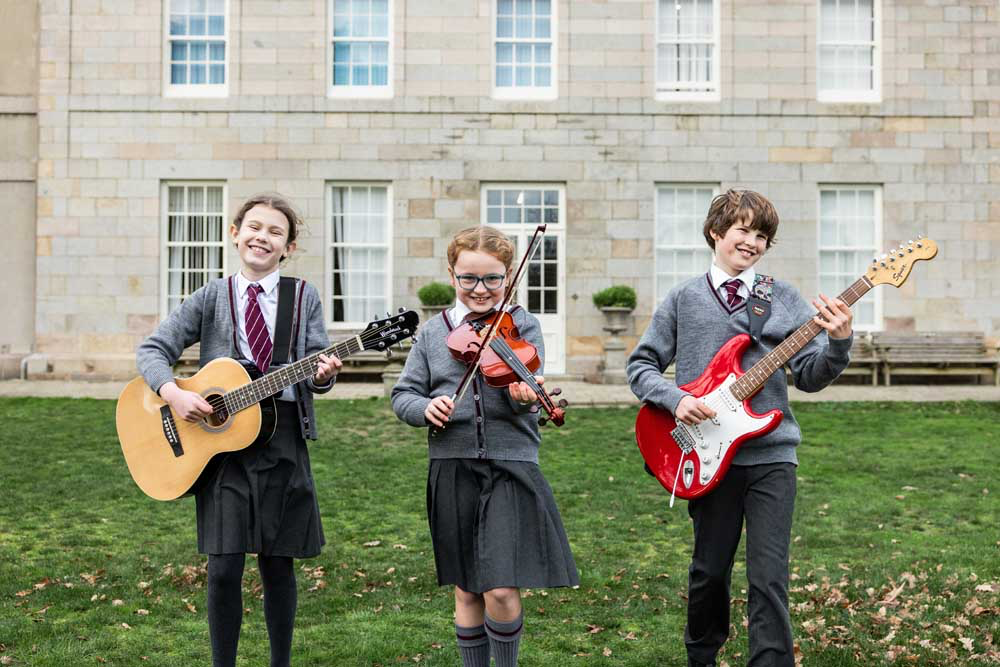

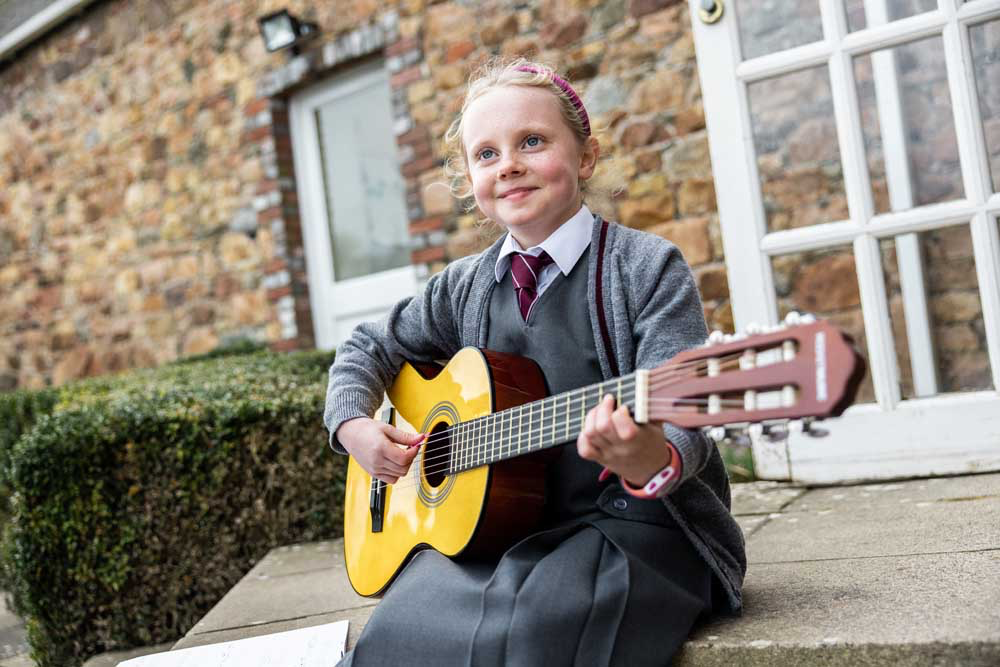
We are passionate about music here at St George’s, not least because it brings us together at times of celebration spreading joy through our halls and allowing the children to perform and build confidence. The social, emotional and academic benefits of music are proven. Music is at the very heart of the school and the benefits it brings are cultivated in our musical learning from Nursery all the way up to Form VI.
Your child’s musical journey has been carefully crafted to ensure they get vibrant, exciting and inspirational lessons which provide progressive, enjoyable and accessible learning opportunities throughout their time at St George’s.
In addition to their scheduled music lessons, all children from Forms III – VI attend choir once a week and the school offers peripatetic music lessons on a wide range of instruments during the school day (supplementary fees apply). Performance opportunities within the School and to a wider audience are rich and varied and inclusive for all, regardless of ability.
We welcome visiting musicians and workshops to the school as much as possible to tie in with what the children are learning and provide additional inspiration.
Reception
Our Reception pupils continue to build on the basic skills introduced in Nursery, ensuring that they start more structured learning in Key Stage 1 with a solid foundation, and, more importantly, love and enthusiasm for Music. They will take primary roles in the Early Year Nativity, building confidence in their performance skills.
Lower Prep
Pupils in Forms I and II continue their inspiring musical start with lessons that involve:
- Singing, dancing and musical games
- Developing an internal sense of pulse and rhythm
- Playing classroom percussion
- Group music making
- Nativity preparation and performance!
- Explore how music can create stories, characters and emotions
- Lear about dynamics, tonality, basic notation, rhythm, timbres, graphic score and sound effects
- Singing and writing their own lyrics
- Introduction to World Music.
Middle Prep
Pupils in Forms III and IV enjoy music lessons that involve:
- Developing their listening skills
- Working in groups to create their own soundscape
- Developing their singing skills
- Being introduced to the Rock n’ Roll genre, learning how to play pieces with body percussion
- Watching a musical and undertaking activities related to what they’ve seen
- World Music, with a focus on Indonesia
- Creating a puppet show to music
- Participating in a classroom playalong project
- Studying Vivaldi’s ‘Four Seasons’
- Going on a soundwalk in the grounds, drawing graphic scores and exploring musical timbre using instruments and voices
- Studying Impressionism to tie in with their learning in Art lessons
- Exploring works by Debussy
- Preparing to perform in Christmas celebrations
- Learning about Pop and Jazz
- Study works by Handel
- Continue to explore World Music with a focus on music from Africa
- Study Symphony No. 5 by Beethoven
- Take part in a classroom Playalong Project.
Upper Prep
Pupils in Forms V and VI enjoy music lessons that involve:
- Exploring Holst’s ‘The Planets Suite
- Continue rhythmic ostinato work in small groups
- Develop singing skills by learning harvest-themed songs
- Learning about the Blues genre
- Studying Verdi’s ‘Dies Irae’
- Preparing for Christmas celebrations and performances
- Exploring Vivaldi’s ‘Winter’
- Watching a musical and exploring how to apply the skills demonstrated to the St. George’s School Production
- Continuing to explore World Music with a focus on South America
- Participating in a classroom Playalong Project
- Studying ‘Carmina Burana’ by Carl Orf
- Studying ‘Connect It’ by Anna Meredith and preparing a class performance
- Studying Folk Music with a focus on UK, Poland and the Middle East
- Exploring Pop Music from the 1970s onwards
- Undertaking a transition project to help prepare pupils for ongoing music learning in secondary school
- Song writing for their Leavers’ Assembly.
ART & DT
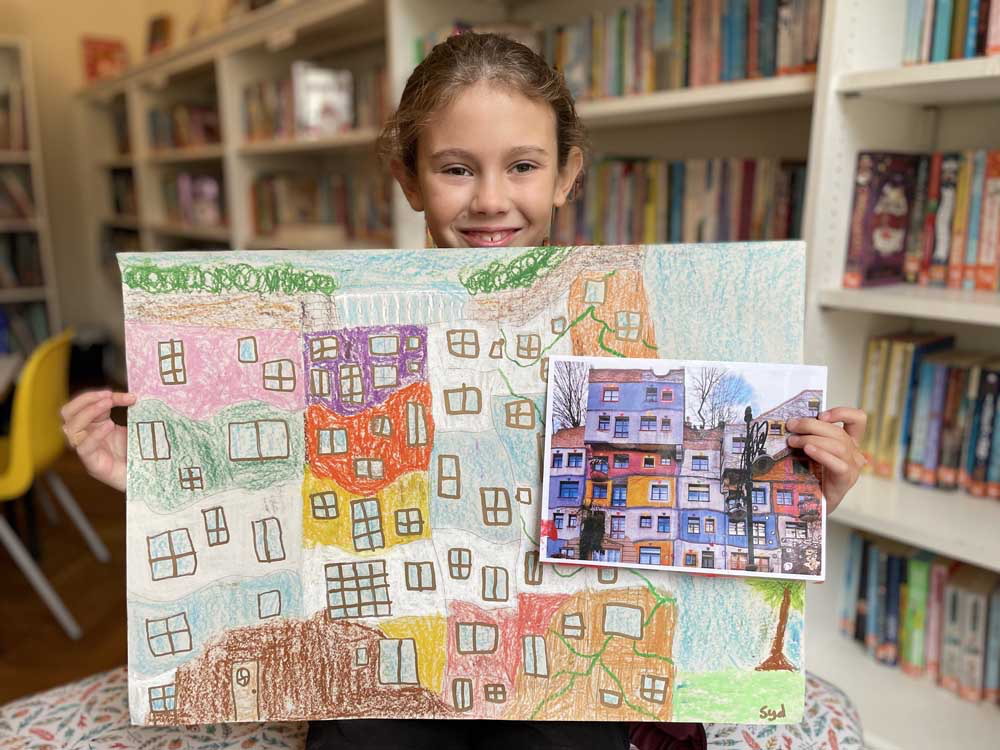
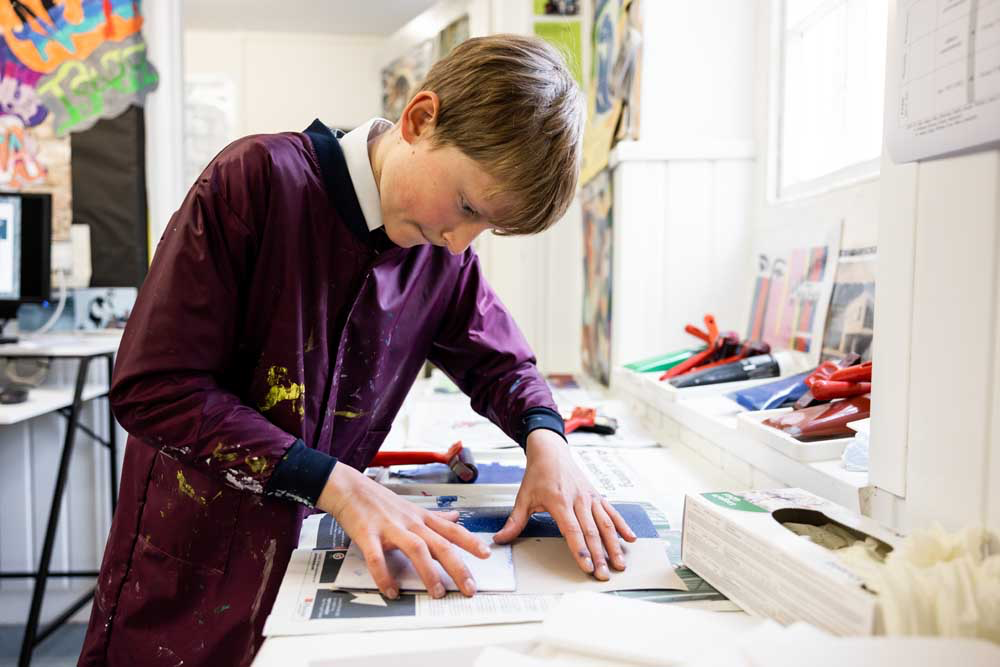
Lower Prep Art:
From Reception to Form II, pupils focus on learning and using a range of art techniques and mediums including painting, drawing, printing, clay and sculpture. Their art is always linked to the work they’re doing in topic lessons, which helps to bring what they’re studying to life. Pupils also look at the works of at least one famous or admired artist per term to inspire their own artwork.
As an example, during and ‘Enchanted Woodland’ topic, the children will look at the ‘Circles’ artwork by Kandinsky which inspire their final pieces of woodland artwork.
Middle and Upper Prep Art:
From Form III upwards, pupils use our dedicated Art Room and DT space. They continue topic-based learning mixed with the studying the principles of art. Form III explore tints, shades and colour mixing. They also study prehistoric art and weaving with paper and cloth.
Form IV start to draw and paint still life studies. They also begin to explore the work of famous artists such as Hockney and Breughel. They replicate the famous Willow Pattern, do drawings in charcoal, and continue with textiles in their DT lessons.
Form V look at drawings in architecture through the work of Hundertwasser, and art from WWI. They learn to adapt recipes in the DT kitchen.
In Form VI, pupils continue to be inspired by the work of famous artists of the classic and modern era. They look at graffiti and the work of Banksy, creating their own Tags. They study Picasso’s Guernica and Cezanne’s still life work. In DT, they enjoy a project based on popular TV format, ‘Come Dine with Me’.
Forms III-VI also take part in our annual ‘Festival of Arts’ displaying their pieces alongside the musical and dramatic performances of the evening. We also enter various ad hoc and seasonal activities and competitions.
DIGITAL
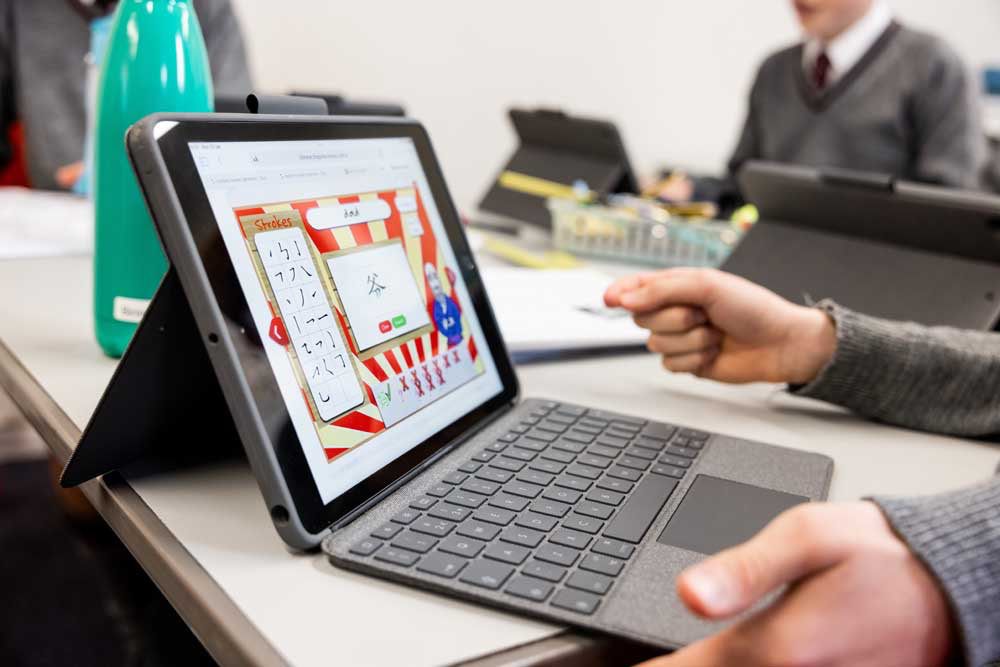

Ensuring pupils have the digital skills to remain safe online and prosper in the virtual realm of their lives is an essential part of preparing them for the future. We use devices safely and with intent from Lower Prep through to Form VI. Lessons adapt to the needs and ability of the children as they mature.
Lower Prep
From Form II, pupils are taught digital skills from a specialist teacher, but they begin using the ICT room from Form I, logging in and accessing educational software. Pupils also use technology regularly in the classroom to complement their learning, including programmes accessed on School iPads and floor robots that introduce coding. ICT and Computer Science skills are taught together with focussed Online Safety lessons each half term.
Middle Prep
In Middle Prep, technology is used in most subjects when it enhances the lesson, with iPads and PCs in regular use. ICT skills are taught throughout the curriculum with timetabled lessons in the ICT suite for humanities and English. Pupils have a Computer Science lesson each week that covers coding skills, online safety and computing systems and networks. Coding includes block coding using a number of different platforms. We also use Google Classroom for remote and in-school learning.
Upper Prep
In Upper Prep, technology continues to be used in most subjects when it enhances the lesson with specialist teachers booking the ICT suite on a regular basis. Each class has a set of iPads used throughout the day. ICT skills are taught throughout the curriculum with timetabled lessons in the ICT room for humanities and English. Lessons cover many digital skills including research, publishing, building websites and using apps and websites safely and productively. A weekly Computer Science lesson covers coding, online safety and computing system networks. Pupils are introduced to text-based coding in Upper Prep as well as extending their use of block coding. Google Classroom continues to be used for remote and in-school learning.
SCIENCE
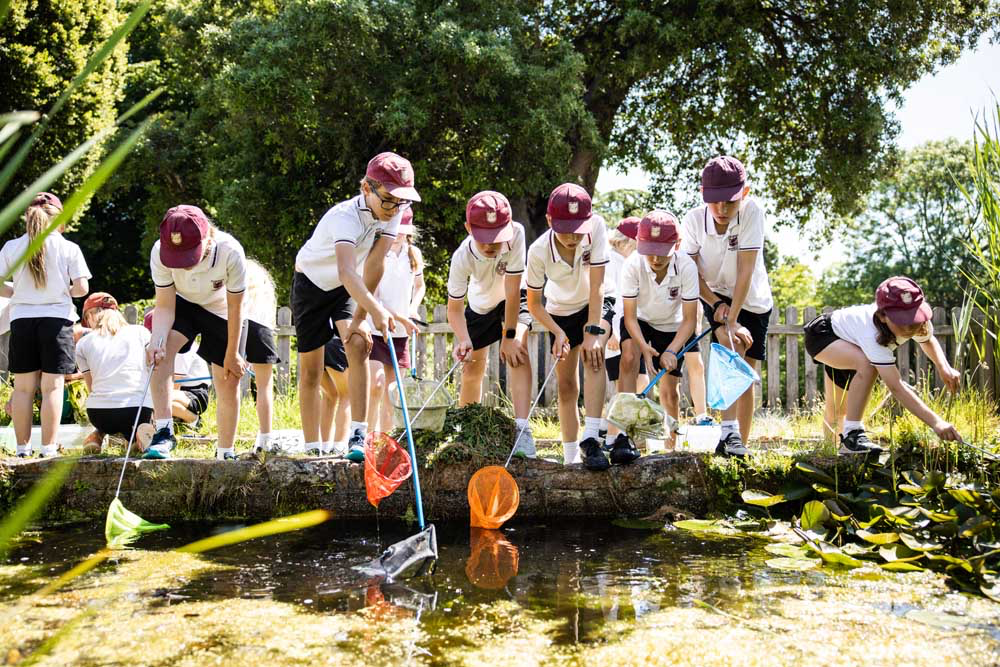
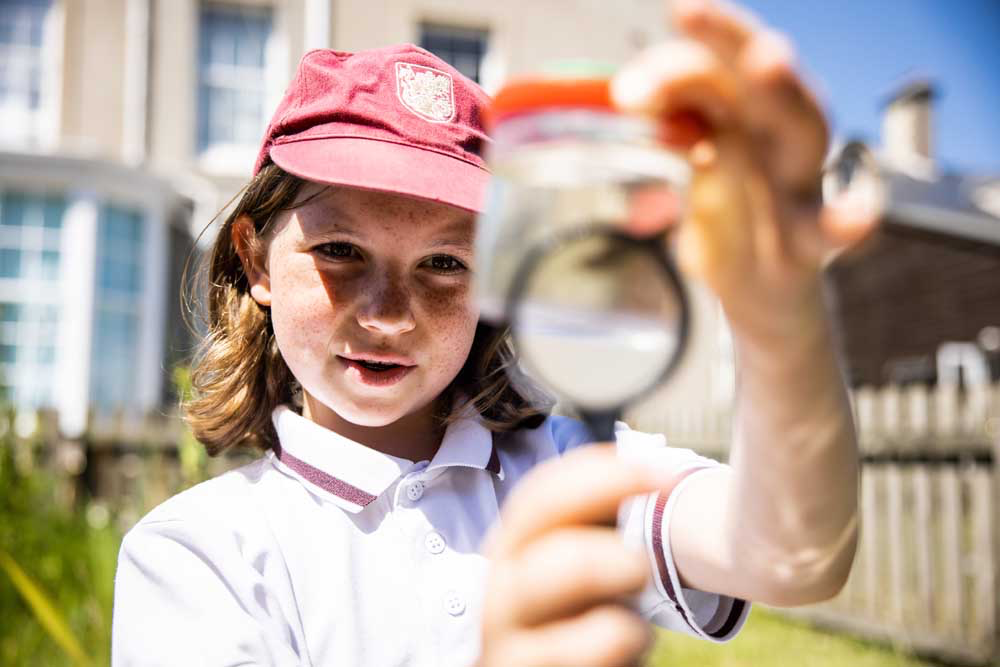

St. George’s seems built for budding scientists in training to make the scientific discoveries of the future! From seasons spotting to pond dipping, from learning about biodiversity in our orchard to building bug hotels in the playground and of course observing the weather and the universe, we use our grounds in a number of scientific ways, wherever the opportunity presents itself .
Reception
Our early years pupils focus their science learning on ‘understanding the world around me’- using more simplistic terms such as ‘Play’, ‘Observe’ and ‘Ask’. Children’s learning is enhanced with the use of a story which we bring to life to enable pupils to play and interact, seeing for themselves what happens and asking questions. In early years, science is all about finding out, investigating and asking questions- learning how to ask questions through play.
**BUTTERFIELD IMAGE
Lower Prep
Most science learning in Lower Prep is done outside where possible, whether its woodland walks looking at biodiversity or inviting specialists from local organisations into the School to give science-based talks to the children. The use of ‘floor books’ in Lower Prep allow learning in science to be focused on discoveries rather than the act of writing itself. Teachers use photographs and help to record the children’s thoughts and ideas to show evidence of their learning and amplify the pupil voice. Children are encouraged to fill in an ‘I Wonder’ section of their books, questioning how things work and encouraging scientific thought and ownership of their future learning as well.
Children learn to ask questions and understand that in science it is ok to change your mind supported by our use of The Welcome Trust’s Explorify platform. Activities on the platform encourage questioning and developing their use of scientific evidence, allowing children to apply their learning to the real-world. From Form I, children study a diverse range of scientists linked to their learning, opening up connections to possible future careers (if you see it, you can be it). Pupils share their floor books and learning with their families during a ‘Family Science Sharing Morning’ which is an important part of the School/home learning partnership.
Middle and Upper Prep
From Form III, science continues to encourage investigation, questioning and exploration. Now, children are beginning to write down their own ideas and formulate their own questions, predictions and conclusions. They are asking more advanced questions and continuing more advanced activities through the Explorify platform.
From Form IV, as well as continuing to learn in the environment and School grounds, children also have their science lessons in our Science Lab with a specialist science teacher. We continue to encourage the application of science to the real-world and future careers. Pupils have individual science books and focus on developing their ‘working scientifically’ skills further and their understanding of different enquiry types. The children enter exciting engineering competitions where they are challenged to create invent the discoveries of the future and they also apply the UNs Sustainable Development Goals to their learning. The children are empowered to show the school value of ‘Responsibility’ by actioning community projects to help combat climate change.
**REWILDING VIDEO
LANGUAGES
MODERN FOREIGN LANGUAGES
French is taught from the Spring term of Little Dragons Orange all the way through to Form VI. For our younger pupils, language lessons involve lots of songs, rhymes and games. As the children get older, they learn to develop their learning into sentences and eventually to be able to read short passages in French. Role plays, games and fun are essential parts of the learning throughout the school. From Form III, pupils start to learn Spanish as well.
Initial language learning focuses on the basis, for example, colours, numbers, days of the week, family members, animals and simple sentences about themselves. As the children get older, they are taught specific topics to help them get by in France or Spain, for example, food, hobbies, weather, countries, nationalities, music, directions and ailments. Our children leave St George’s confident in languages and more than ready to take on the challenges of secondary language learning.
Our pupils leave St George’s confident in languages and more than ready to take on the challenges of secondary language learning.
MANDARIN
For pupils in Form VI, we are delighted to offer the opportunity to learn Mandarin. Lessons follow the highly regarded Dragons Connect platform, where children are taught new vocabulary and how to write Mandarin characters, along with a focus on various aspects of Chinese culture.
Pupils use their iPads to complete online exercises that consolidate their learning which gives them instant feedback, followed by a series of fun, educational games that reiterate previous learning and earn ‘Fu points’. The children become extremely competitive and really enjoy their lessons.
Every pupil has the option to take the Independent Schools Examination Board Level 1 (spring) and 2 (summer) examinations in Mandarin.
FOREST SCHOOL
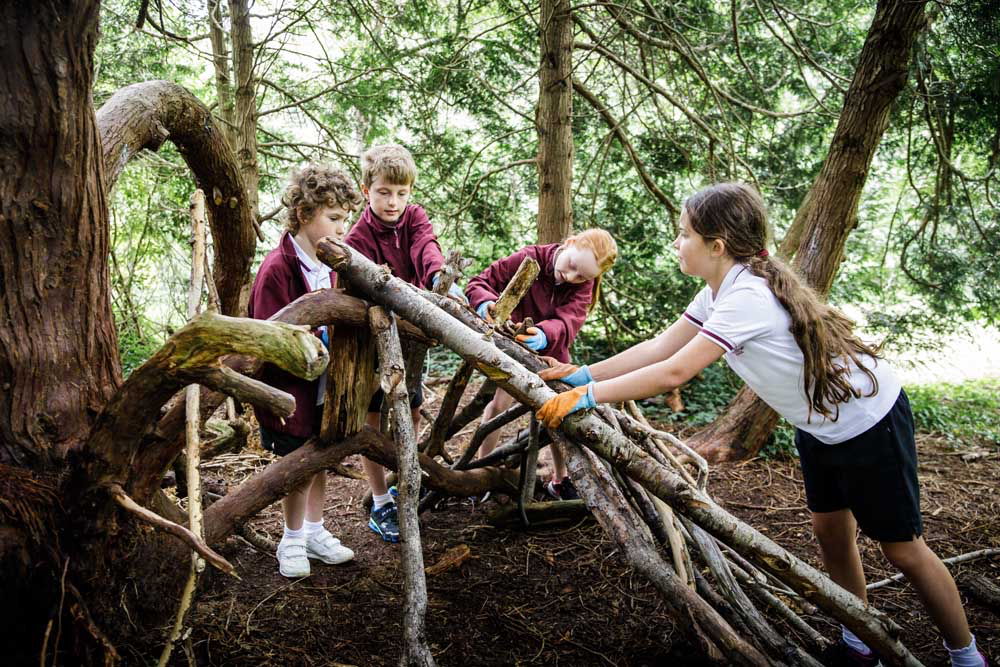

Blessed as we are at St. George’s to be surrounded by 35 stunning acres of woodland and grounds, our Forest School sessions are not an added extra but fundamental to our curriculum. Following the core philosophy of Forest Schooling, originally developed in Denmark in the 1980s, the intention is to provide young children with an education that encourages an appreciation of the wider, natural world and a will to take responsibility for nature conservation throughout their lives.
Many members of our Teaching Team are Forest School trained to advanced ‘Forest School Leader’ Level, having trained with renowned Forest School expert Mr John Blaney based in Bridgwater, UK. As well as extensive grounds and woodland, we also have a dedicated Forest School area with space to explore, create and appreciate nature. We have a firepit, seating area, story den and a shed full of tools the children use safely under direction when working with natural resources. In 2021, our Form VI Leavers (and huge Forest School enthusiasts) gifted us a Tipi which the children use to gather in and around during their outdoor lessons.
Forest School not only creates an understanding and attachment to nature, but also promotes creativity, confidence, independence and self-esteem. Children are encouraged to do things themselves and create from nature, which encourages them to take risks (under supervision) and direct their own learning, exploration and play. We find that Forest School sessions:
- Inspire awe and wonder whilst teaching children about the outdoors and their environment
- Encourage problem solving
- Extend vocabulary
- Prevent anxiety
- Improve resilience
- Create opportunities for hands-on, real-life learning
- Allow practical skills to develop naturally
- Create opportunities to work individually, as part of a team and in small groups to achieve a goal
Over the course of their sessions, children might use natural resources to build bug homes and bird houses. They might use tools to create Forest School artworks. They make Forest perfume and crowns and go on foraging nature walks. Children will develop skills such as binding and knot tying and learn about the different types of trees, plants and flowers.
Our pupils enjoy Forest School in all weathers and we’re very proud to deliver these sessions from Nursery all the way to Form VI.
